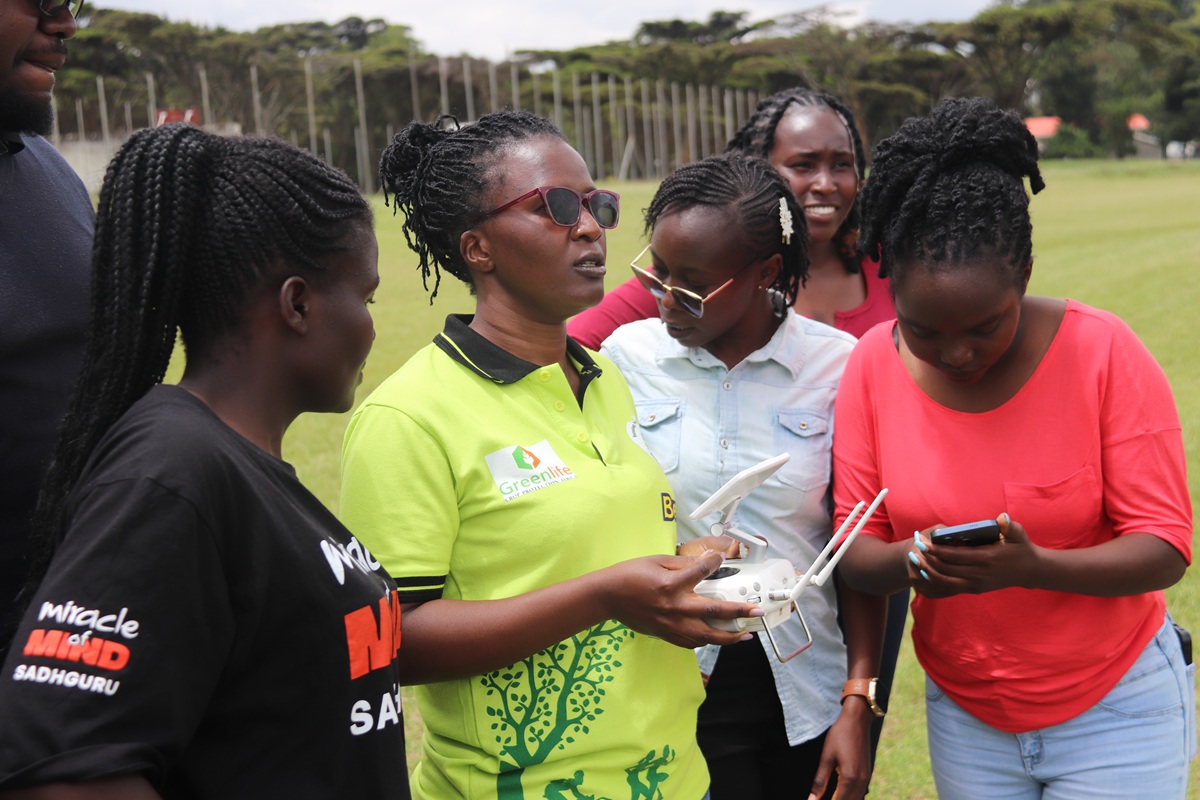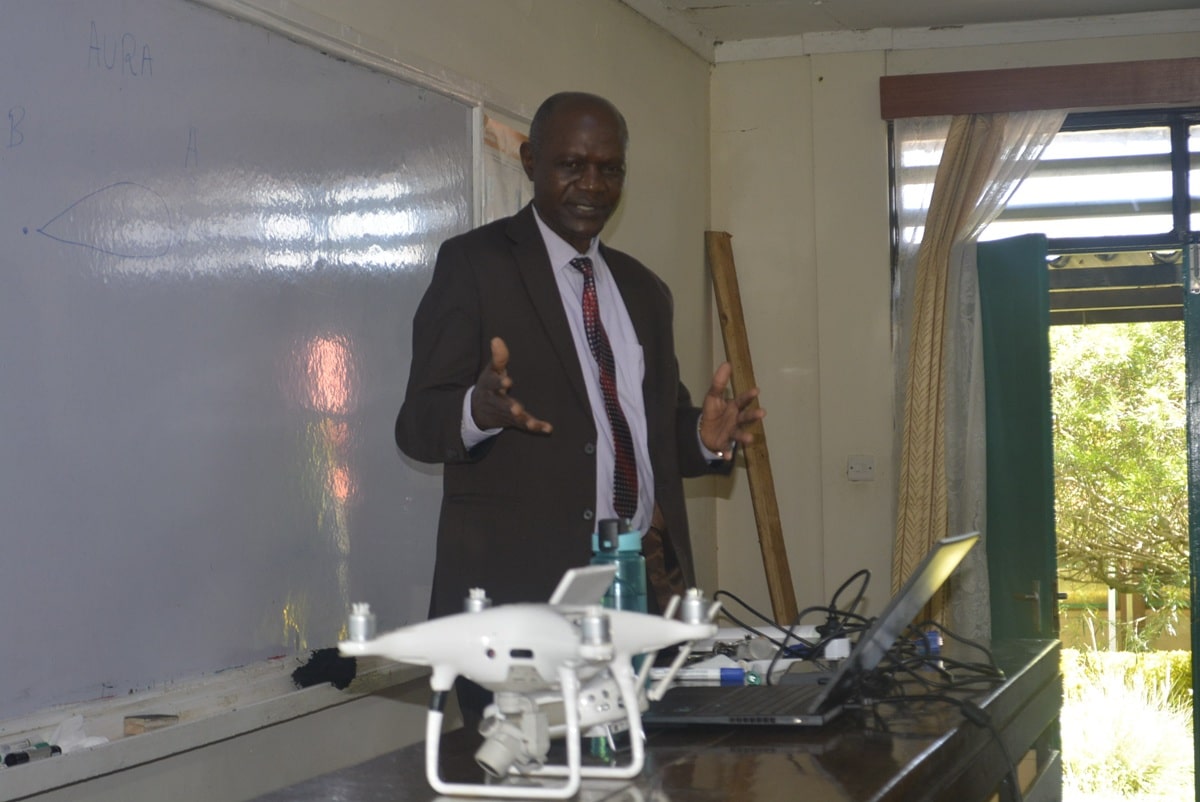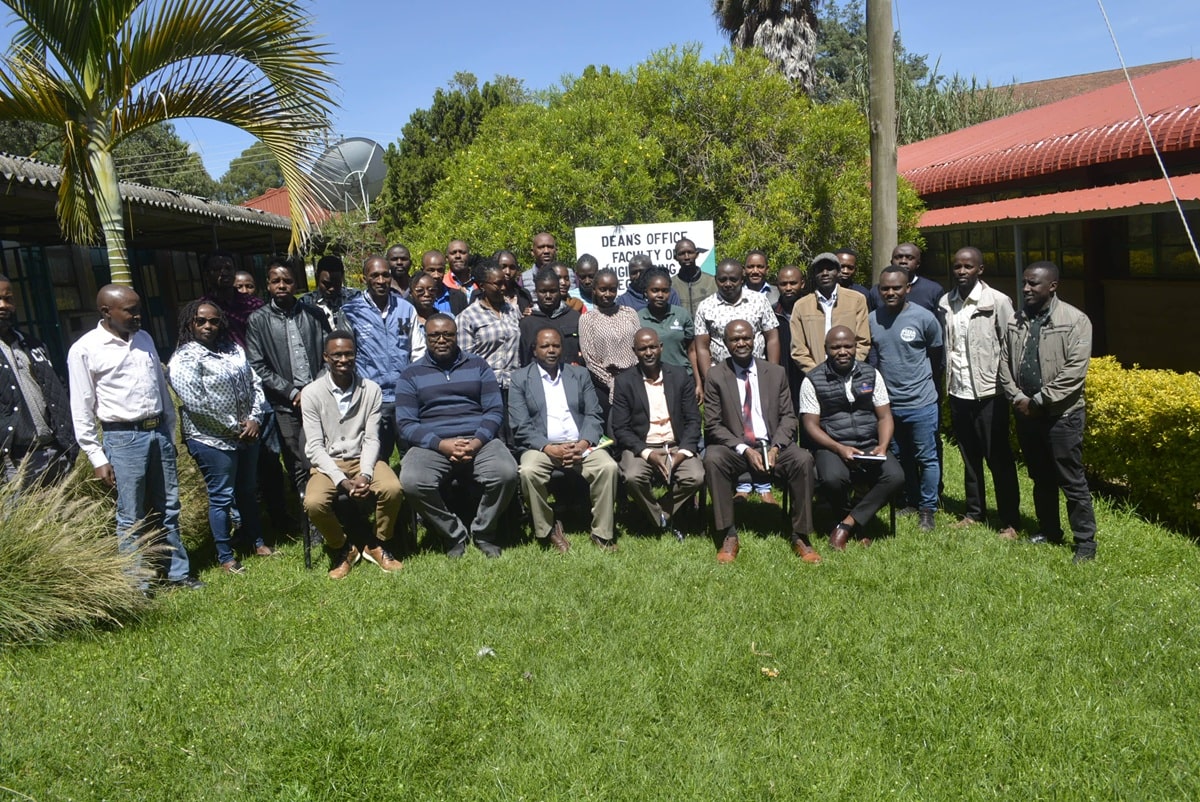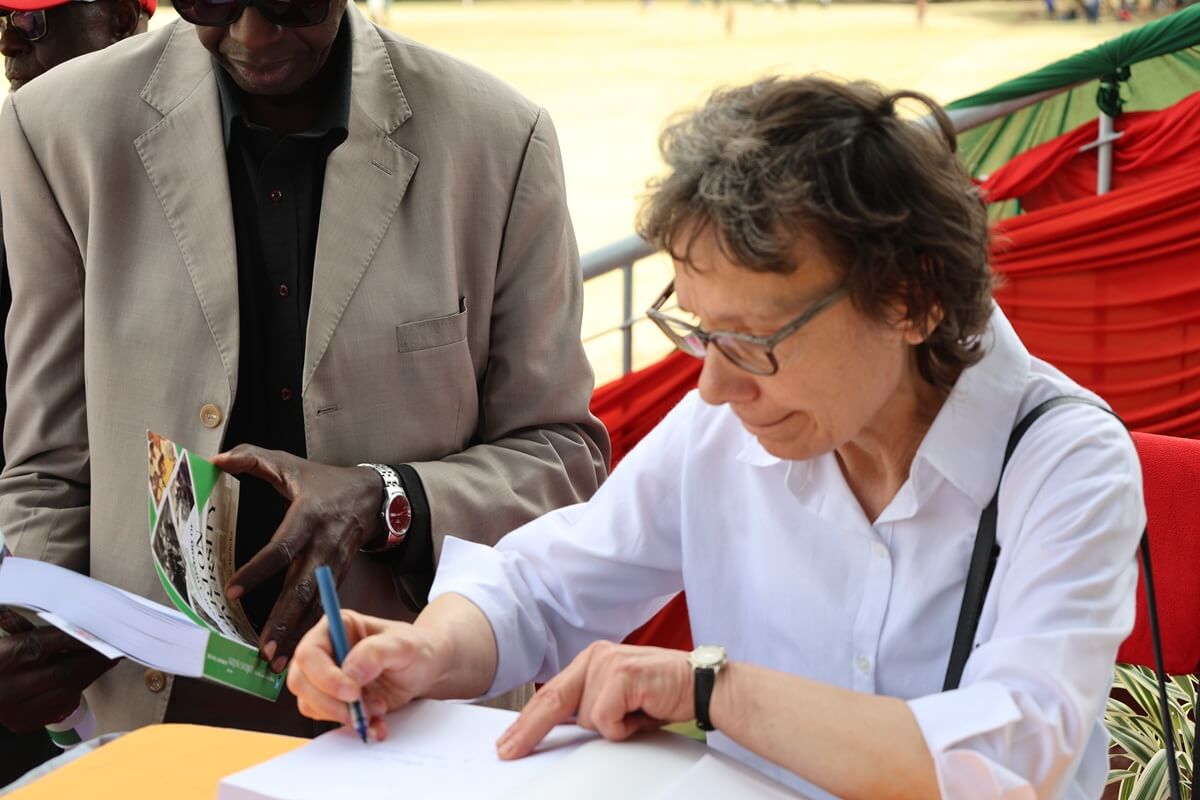Egerton University has marked a major milestone in advancing agri-tech innovation with the launch of its inaugural Agricultural Drone Pilots Training Programme.The initiative, hosted at the institution’s Main Campus in Njoro, has attracted strong support from key partners including the Agricultural Industry Association of Kenya (AAK), TAGDev, CIWAB, Hallo Tractors, Versadrones, the Ogiek Peoples’ Development Program, and the Kenya Civil Aviation Authority (KCAA).

Director of the Graduate School, Prof. Charles M’Erimba, welcomed the partners, noting that their collaboration demonstrates a shared commitment to transforming agricultural practices through modern technology.
He emphasized that drone technology is fast becoming a critical tool in precision agriculture, and Egerton University is positioning itself at the forefront of building capacity in this emerging field.Speaking during the second day of training, Prof. Japheth Onyando, Dean of the Faculty of Engineering, commended the participants for their dedication to the intensive two-week programme.
He said the trainees will be well-equipped by the end of the course and qualified for licensing, paving the way for professional practice.
Prof. Onyando urged the trainees to approach the exercise with seriousness, stressing the importance of integrity, professionalism, and ethical drone use especially in agricultural environments.
TAGDev representative Prof. Anthony Kibe spoke on the significance of integrating drone technology with evolving crop management practices. He highlighted the need for proper fertilizer application tailored to different soil types—both alkaline and acidic—so that nutrients can be effectively absorbed by crops.
He noted that foliar fertilizer application has gained traction in recent agricultural discussions, and drones have proven to be efficient tools in delivering fertilizers directly to crop canopies.
“If you can fly this and apply fertilizer on a crop that has essentially covered the ground, then you shall have efficiently helped the fertilizer application,”said Prof. Kibe, adding that such technologies complement government programmes aimed at enhancing fertilizer use in farming.
He further observed that drone-based solutions are especially beneficial to elderly farmers who often struggle with manual field operations.

Both Prof. Onyando and Prof. Kibe encouraged trainees to ensure they obtain proper licensing to practice in Kenya and even beyond its borders, given the rapidly expanding demand for drone services in agriculture.Programme Coordinator Dr. Patrick Wamalwa, from the Faculty of Engineering, described the training’s inception as highly encouraging. He noted that the cohort brings together a diverse group of enthusiastic learners, including university dons, community members from various counties, staff, and continuing students.

“The majority are in agriculture, some are businesspeople, others in the built environment, and others are in photography,” said Dr. Wamalwa, highlighting the broadening interest in drone technology across professions.
With strong institutional support and enthusiastic uptake, Egerton University’s drone pilot programme is poised to strengthen Kenya’s agricultural transformation agenda through technology-driven solutions.
This program empowers professionals to implement technology-driven farming systems that respond to the global demand for food security and environmental efficiency.







